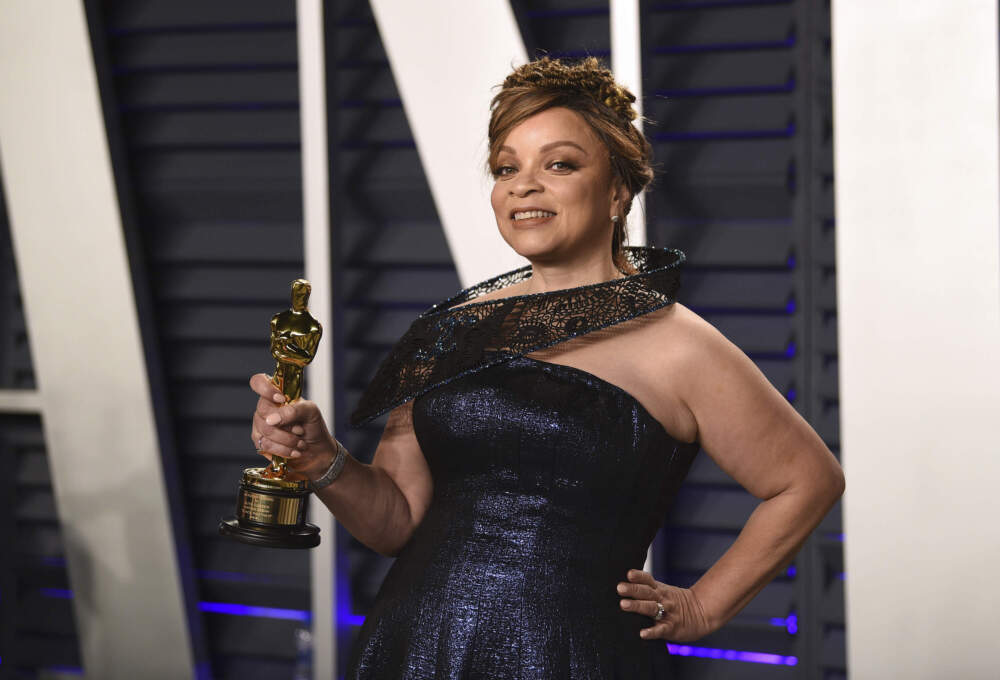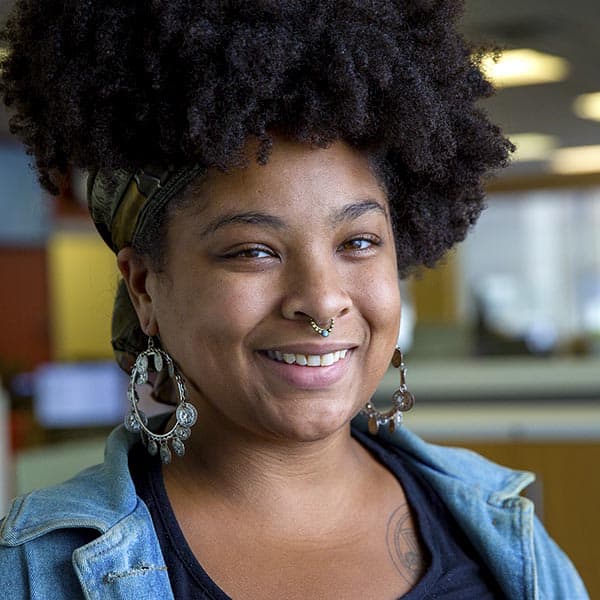Advertisement
Award-winning costume designer Ruth Carter receives Coolidge Award

Award-winning costumer designer Ruth Carter will receive the Coolidge Award from the Coolidge Corner Theater in Brookline this Sunday. Established in 2004, the Coolidge Award is given to a "film artist" whose body of work has made significant impacts on cinema.
Previous awardees include Julianne Moore, Meryl Streep and Michael Douglas. Carter is the first Black woman to be given the Coolidge Award.
The event will feature a screening of "Black Panther," a film for which Carter designed costumes. Coolidge Corner Theatre will also host a Q&A and book signing highlighting Carter's new book, "The Art of Ruth E. Carter: Costuming Black History and the Afrofuture, from 'Do the Right Thing' to 'Black Panther.'"
"Massachusetts [is] where I was born and raised," said Carter in an interview with WBUR. "This community is bringing home one of their own. You know, I just feel like I am my ancestors dream by receiving this award."
Carter's career spans decades and includes costume design for films like Spike Lee's "Do The Right Thing" and "Malcolm X," Ava Duverney's "Selma" and Lee Daniels' "The Butler."
In 2019, she became the first Black woman to win an Oscar in Costume Design for her work on Ryan Coogler's "Black Panther." She then went on to become the first Black woman to win two Oscars in any category for her work on 2022's "Black Panther: Wakanda Forever."
Though Carter has trekked across the globe to work on films as a costume designer, she still considers herself a "daughter of Massachusetts." She grew up with seven siblings in Springfield.
"Even though my mother was a single parent, it wasn't always on her to lead," said Carter. "My brother taught me how to drive. My sister combed my hair. My brother Robert was an artist. He influenced my brother Roy and I to draw and to paint. I had siblings that were great, great people."
Carter went on to attend Hampton University, a historically Black university in Virginia where she began to delve deeper into the world of costume design. After graduating from Hampton, Carter returned to Springfield.
Advertisement
"I applied for internships all over the country," Carter said. "I came back to Springfield to intern at Stage West, called City Stage now."
It was there where Carter continued to hone and sharpen her design skills. "It was great, I was learning a lot," she said. "It was a really, really good costume department and they're the ones that, you know, saw something in me."
It was Stage West that wrote Carter a recommendation to work at the renowned Santa Fe Opera.
"You can only get in through a strong recommendation," said Carter. "I was accepted, and packed up my little Volkswagen Rabbit and drove across country. And the rest is history."
Carter went on to costume design for a long list of films, like Robert Townsend's "B.A.P.S" and John Singleton's "Baby Boy," that helped define and shape Black culture and aesthetics. Carter explains that clothing has always been more than just what we put on our bodies — it is steeped in radical and revolutionary potential.
"We evolve through fashion. We take on the details of what's available to us to express ourselves," said Carter. "It tells such a larger story. About not only us, but our circumstances. When you look at costume design, you look at it through that lens of telling a story about humanity and how the composition and the collaboration of each other tells the story about our society."
After years of costume design, Carter took on a new venture with the 2023 release of her book. It was a different type of challenge but a welcome one, said Cater.
"The stories that I tell in the book are stories that I've told to others more organically, like sitting at lunch or having a coffee with someone," she said. "When you write a book, you're talking to a massive audience. And so it's more important for the reader, as opposed to you just being a storyteller... the reader is on a journey with you."
Though Carter's work has touched people of all ages, she said that seeing the way her work impacts young people has been particularly poignant. She remembers as a child being part of mentorship programs where older kids taught her about things like art, music and even yoga. The practice of older generations passing down knowledge is incredibly important, she said.
"When I think of someone... feeling empowered by my story, I'm doing what [my mentors] did for me. I'm paying it forward. And that's my role. That's my responsibility. And that's my joy."
